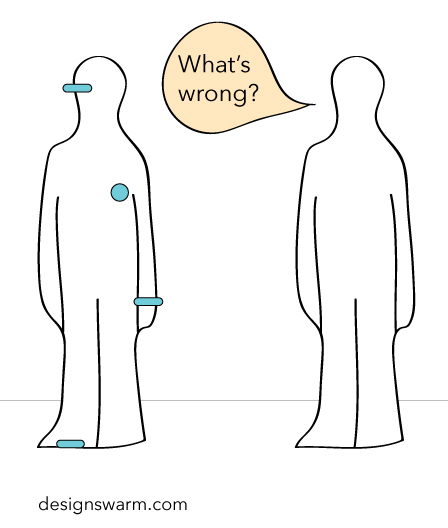In May, Ana Bradley joined my consultancy as a Partner and one of the first clients we worked on together was Imago TechMedia. We helped them plan an event for the insurance sector around the internet of things in a half day workshop. The insurance sector is one I’d recently been looking at anyway for a piece of strategy work I’m doing with the BBC R&D North Lab in MediaCityUK. In light of Cory’s post tonight though I thought I’d share some quick thoughts on the matter.
For the past 4 years, insurance companies have been using connected hardware to offer flexible and dynamically generated premiums in the car industry.
- In 2010, MyKey was a feature on all new Ford cars which allowed parents to lend their car to their teenager and set parameters of usage.
- In Germany, all new cars have “black boxes” by default since a government ruling supported this in 2012.
- These days, companies like Ingenie set up the box on any car for the young driver (17-25 year olds) in your household and charge you premiums according to their driving behaviour
Now they are looking beyond cars and into the world of healthcare insurance (after all they’d been tracking your gym attendance) and what better consumer products to exploit than the emerging bubble of wearables?
This sounds good in principle: if you’re good, and you exercise you premium will be low. But what if you’re bad for just one week because you got dumped by a significant other? You spend less time in the gym and so are automatically penalised, even if you’re doing ok overall.
What if you’re really ill? Then the insurance company might offer you a plethora of connected devices, all in the name of making you pay less while they (via the product company) collect more and more data. If we’ve got issues with the NHS holding our data, well I’m not sure we’d trust insurance providers, after all private companies who own the devices can do whatever they like with the data. Remember that back in 2011, TomTom sold its satnav data to the Dutch police who then used it to set speeding traps and retro-actively send speeding tickets.
So people start to panic and say “No I don’t want to be traced”. So they are charged more.
And this is where a new divide occurs: a new class system determined by data. The poor are tracked and traced while the rich can afford to pay more for their premiums and for anonymity by extension. This also means wearable companies will be tainted by that industry and will come to mean “i’m too poor to pay or ill for expensive insurance so I wear a connected device”.
Might sound a little Adam Curtis, but that future is what worries me about insurance companies.


1 comment
Comments are closed.